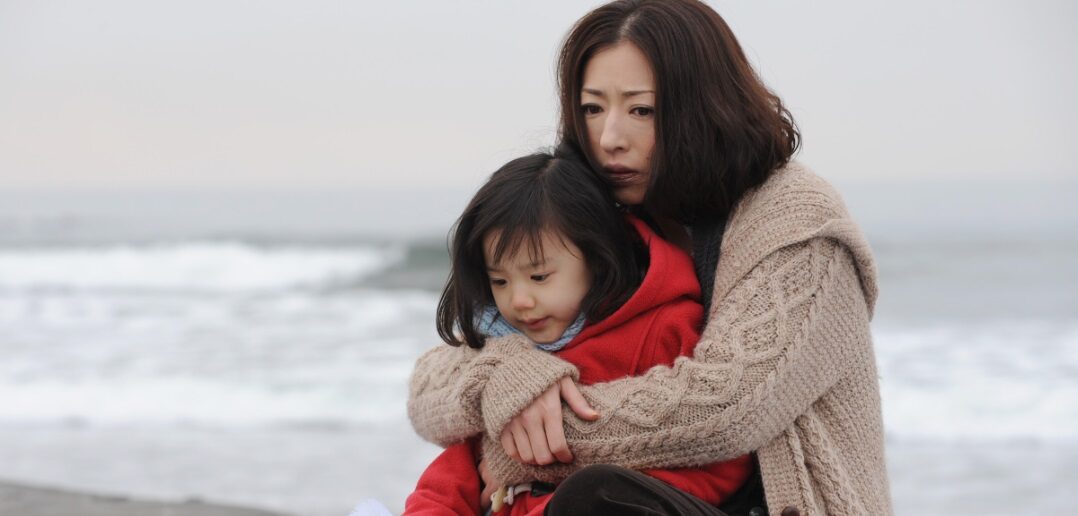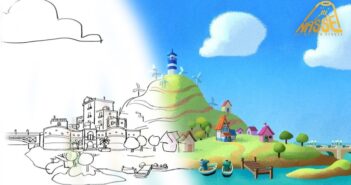“Mother” : one of the most exported scripted format out of Asia
It’s fair to say that Korea has been the most successful Asian territory when it comes to exporting content & scripted format around the world. But Japan has also had some notable successes in the international market…
The majority of Japan’s recent successes on the international market have been entertainment formats, high-end documentaries and anime. But Nippon TV’s ongoing success with the format of scripted series Mother has showcased a new dimension to Japan’s creativity and commercial acumen.
First adapted for the Turkish market, the format for Mother has now been sold into several major markets. It has also opened the way for other Nippon TV shows to secure remake deals.
Here we talk to Yuki Akehi, director and head of marketing and PR, international business development, Nippon TV, about the company’s experience with exporting Mother.
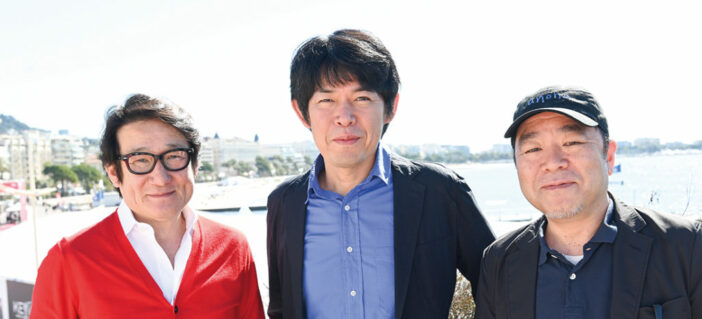
Mother’s creators team : Nobuo Mizuta, Yuji Sakamoto & Hisashi Tsugiya
Can you tell us the plot line of the format Mother?
The heroine of this drama is a woman in her mid-thirties who has apathetically lived her life without interest in romance, society or even her own life. Working as an elementary school teacher, she learns that one of her students is being abused at home. Although unable to comprehend her sudden impulse, she kidnaps the young abused girl to bring up as her own. This is where the story begins. Later, while on the run, she re-examines her past lifestyle and searches for her path in life. Pivotal to this drama is the word “maternal”. The heroine, who had never awakened to her own maternal side, discovers this instinct deep within herself.
When did Mother launch in Japan? Did it do well in terms of ratings?
Mother was created by the team of Nippon TV’s producer and director Hisashi Tsugiya and Nobuo Mizuta and award-winning scriptwriter Yuji Sakamoto. It started filming in early 2010 and finished in June 2010. It aired in primetime on Nippon TV – and its network stations – to rave reviews and high ratings. It subsequently won awards at home and around the world.
Was it renewed in the domestic market?
The term “renewal” does not often apply in the Japanese industry. Mother was not written with multiple seasons in mind. It had 11 episodes and the plan was for them all to be 60 minutes. But the season premiere and finale were both programmed longer due to high anticipation before the premiere, as well as heightened interest in the ending.
Would you say it was typical of Japanese content at that time?
Japanese viewers were intrigued from the first episode because it was not typical at all. Tsugiya and Mizuta were seasoned creators, but it was the first time they had worked with Sakamoto. Between them, they set out to create a story that they believed was necessary for the times. They had multiple meetings where they discussed what made them angriest in society, and child abuse was the unanimous topic. Once the theme was set, director Mizuta brought his expertise in telling the story, utilising cutting-edge camera and editing techniques to show the story in the most dramatic way. Once the series aired, viewers were quick to notice the high production values as well as the poignant message of the story. The story of an abused child and the woman who had never awakened to her own maternal side, along with the harsh reality faced by the biological mother of the child, stirred viewers’ feelings.
How did the international rollout work?
It sold immediately to Asian countries where we have clients and viewers that are keen to acquire and watch Japanese series shortly after they air in Japan. South Korea is a prominent example, where CJENM was our client for acquiring the scripted format rights. South Korea’s scripted market is known for making meticulous preparations in creating captive series for their audience, and while they were working on the local script with their writers, MF Yapim/Medyapim from Turkey actually became the first to actually to produce a local version in 2016.
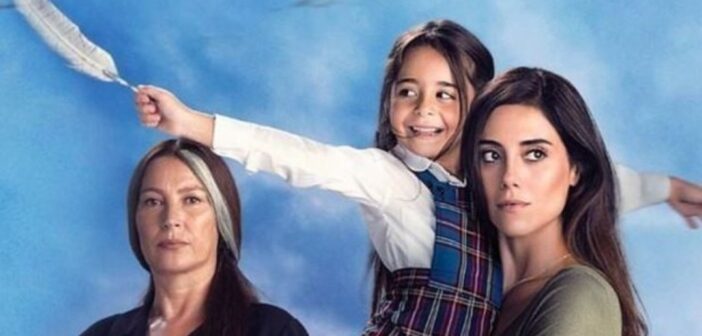
Anne (Mother, the Turkish adaptation)
How did the Turkish deal come about?
MF Yapim/Medyapim are two major Turkish production companies lead by Faruk Bayhan and Fatih Aksoy. They are not the same company, but they work very closely – and they had been looking for new types of series for their competitive market. Mother was an impactful genre that they had never seen before, and they had a very strong desire to adapt our story in their way.
It is always a bit worrying to work with a foreign country for the first time, but it was timely that Turkey was the country of honour at MIPCOM 2015. Their ability to create stories with high production values was impressive, and the distribution record of completed Turkish shows to international countries was eye opening. That all supported us during the initial business negotiations between two completely different content industries working together for the first time. It took quite some time and a lot of discussions. But in the end, their passion persuaded us to pursue Nippon TV’s first ever deal with a Turkish production company. As a result, Mother became the first Japanese scripted format to be adapted in Turkey.
Can you provide more insight into the creative collaboration?
MF Yapim/Medyapim proposed some new ideas to intrigue their viewers and produce more episodes, and Sakamoto and the team were quick to understand the necessity of those local adaptation ideas. They approved, but only after trust between the creators was established. Looking back, a factor that helped both companies to overcome their cultural differences was that the theme of the script was motherhood. It is a theme every culture has interest in and can relate to. There was also another similarity between the two countries: the style of both series productions is not so direct; they make viewers read between the lines, and take in the message of the story without it being overtly said or acted out.
How did the Turkish version work out?
Anne – the title of the local version of the show – was produced to a high standard and the result was phenomenal. The story became an instant hit on Turkish broadcaster Star TV. Each episode was double our length, spanning over 30 episodes. Anne brought a dramatic new approach to the Dizi industry with its heart-wrenching story and realistic portrayal. It was a new genre in the fiercely competitive weekday night drama scene and ratings grew week after week.
How does the distribution of Anne work?
Turkish content has excellent global reach, from the Middle East to East Europe and Central and South America. Anne is distributed by Global Agency on the behalf of MF Yapim/Medyapim and us and has sold to over 40 countries worldwide. It is an innovative partnership, where the original IP holder also gets a share of the revenue of the tape sales.
Did you secure more format deals in Turkey as a result of Mother’s success?
After Anne, MF Yapim/Medyapim proceeded to adapt another scripted format of ours, Woman – My Life for My Children. This was another series that had been created for Nippon TV by Tsugiya, Mizuta and Sakamoto, in 2013. The team reunited to tell the story of a single mother living in harsh reality and her relationship with her estranged mother. MF Yapim/Medyapim and Fox Turkey set out to produce and air Kadin – the title of the adaptation of Woman – in 2017. Again, the magnificent portrayal captivated the audience and it went on for an astonishing three hugely successful seasons spanning over three years in total. Echoing the previous success of Mother, it has been distributed in almost 50 countries.
So far, other format deals in Turkey are all with MF Yapim/Medyapim. Although we do not have an exclusive partnership, their interest in Nippon TV series continues, and led to Mr. Hiiragi’s Homeroom being adapted as Ögretmen in March 2020 and Abandoned as Cocukluk in October 2020. The latest adaptation is our Oasis – a love story adapted as Misafir, currently airing on FOX Turkey. We have also announced the adaptation deal of our My Son and I’m MITA, Your Housekeeper, which again should be well received by the Turkish audiences.
Have you done other format deals for Mother?
Yes, word travelled quickly and we started to receive many offers for more international adaptations. Mother has now been licensed to South Korea, Turkey, Ukraine, France, Thailand, China, Indonesia and Spain, making it one of the most exported formats out of Asia according to K7 Media (Nov, 2021). Indonesia has not yet started production due to the pandemic but Spain is in preparation. Our first adaptation in Western Europe is the French version Sauver Lisa (Saving Lisa), produced by Édouard de Vésinne’s production company Incognita. It first streamed in July on SALTO to rave reviews and is currently airing on M6.

Sauver Lisa – Mother French adaptation
What is the usual distribution model on these format adaptations?
We retain the original rights to the scripted format, while our partners produce and distribute their version and the revenue is shared. South Korea aired their version in 10 countries in Asia at the same time and we expect the Spanish version to travel as well.
[Editor’s note: the Korean version of Mother actually sold back into Japan, where it aired on Nittele Plus, a channel operated by Nippon TV. Nittele Plus aired the original Japanese version in its entirety as well as all episodes of the South Korean remake. Binge watching to compare the original with the remake is popular on Japanese pay-TV platforms].
What key lessons have you learned from which others might benefit?
Flexibility is essential for a successful adaptation. But before you reach this point, you need to understand and build trust with your client and have passion for your content to travel. The original party needs to have confidence that the adapting party understands the important underlying spirit of the original story before greenlighting their adaptation. The depth of communications that you make until you gain that confidence is what makes the difference. Our creators and those of us in the international business division witnessed the passion, strong understanding and dedication of MF Yapim/Medyapim. That made it possible for us to support their decisions, leading to the enormous global success of Mother.
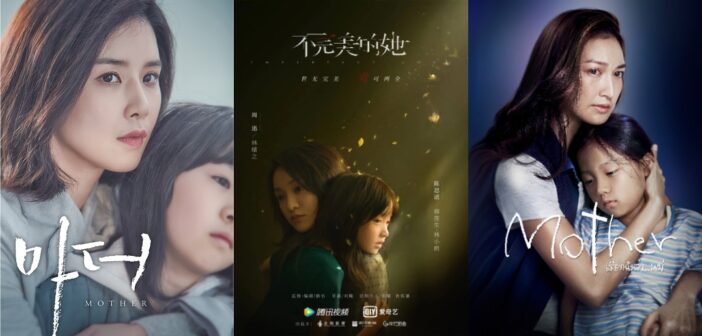
Mother adaptations : Korea-China-Thailand
Any other positive developments on the format front?
We recently did a deal with streamer Netflix in Asia for several completed series and entertainment shows. Netflix has a keen eye for content and we are happy with this non-exclusive deal, which has opened more doors for us. Since that deal we have received interest from clients who were not aware that our shows might resonate with their local audience.
Newsletter →
For more information on TV Trends, attend MIPCOM and MIPTV
You want to know more about Chinese & Asian TV channels & platforms ? attend MIPChina
You can read also :
5 things we learned at MIPCOM 2021
Financing TV production : The magic money tree grows
Factual TV show to watch : How I caught the killer

